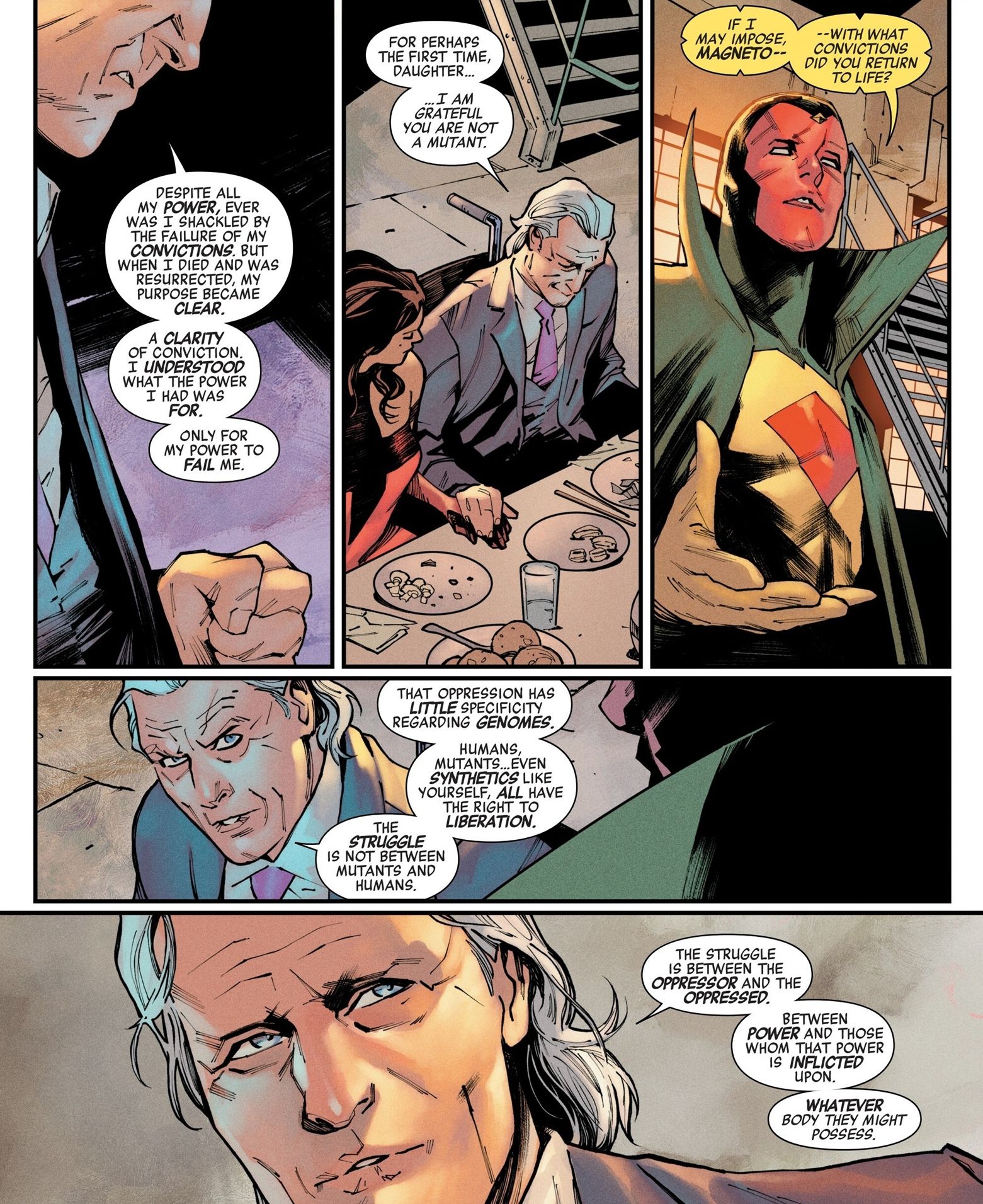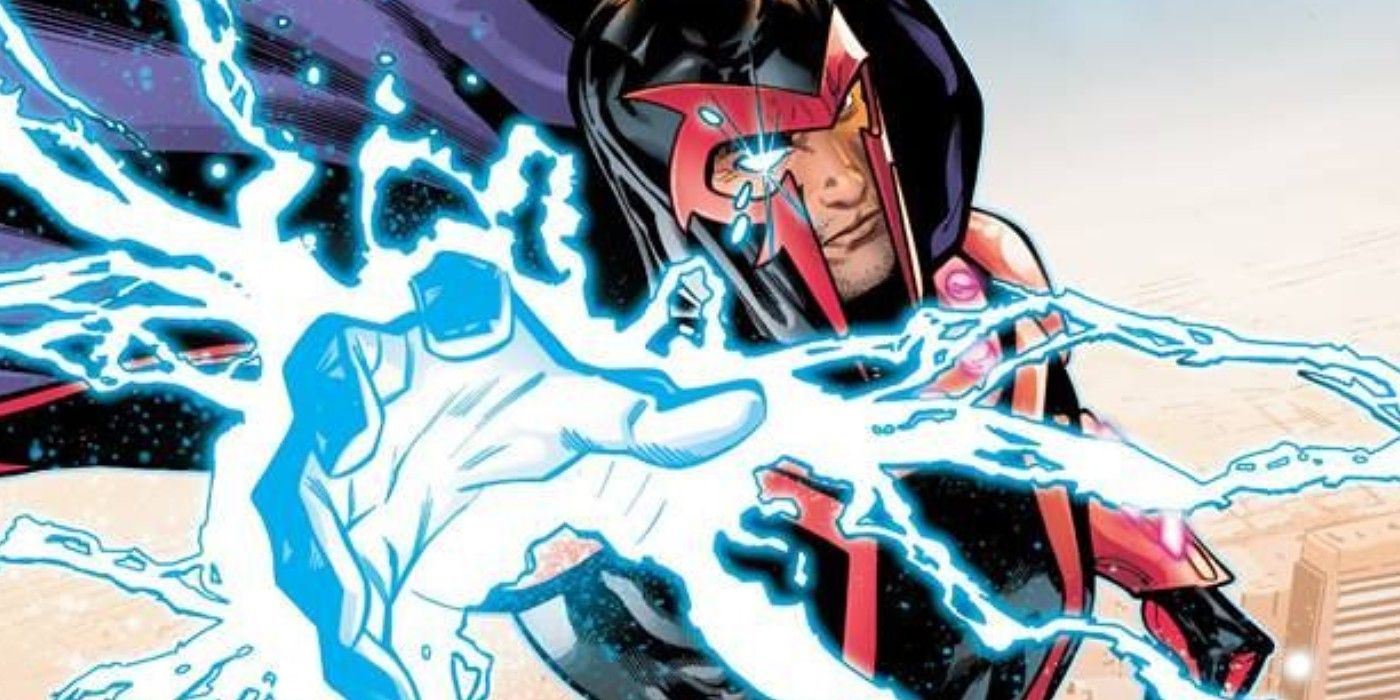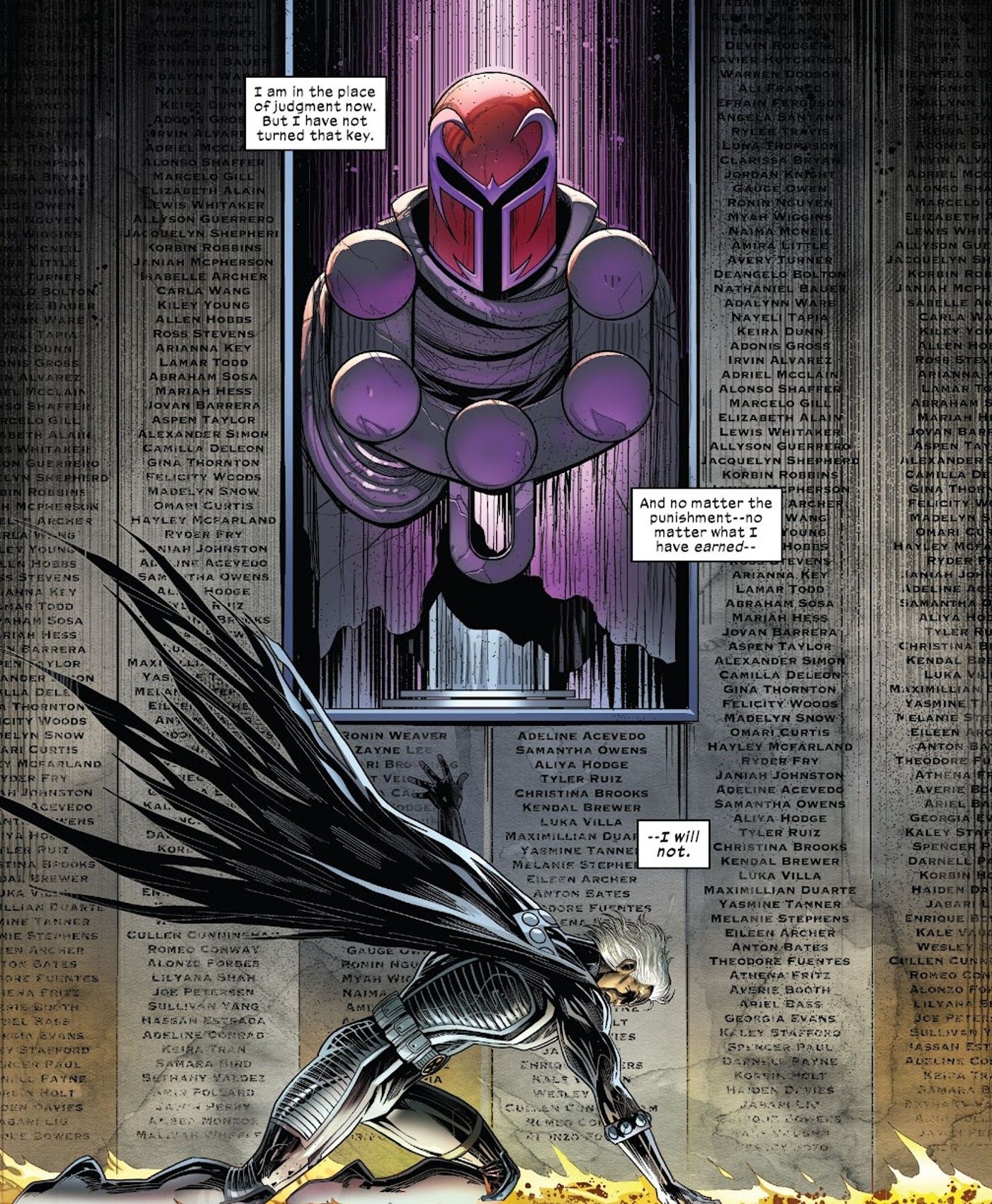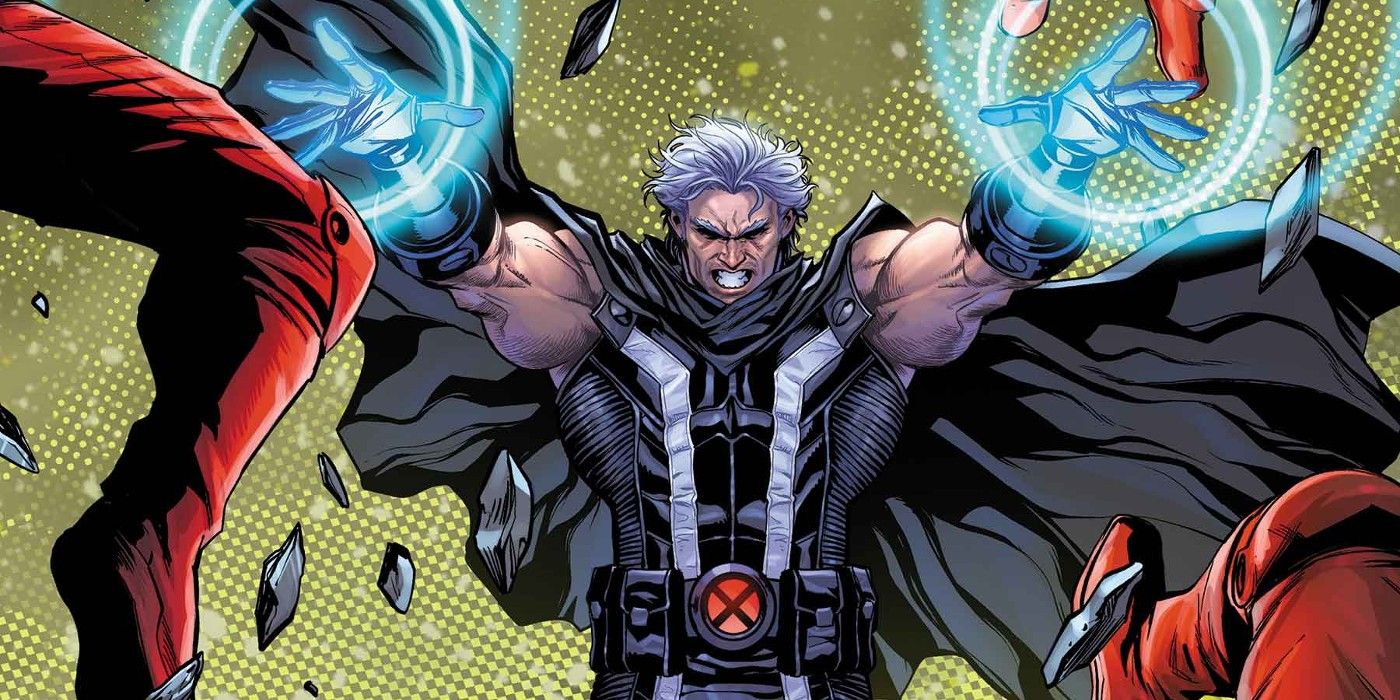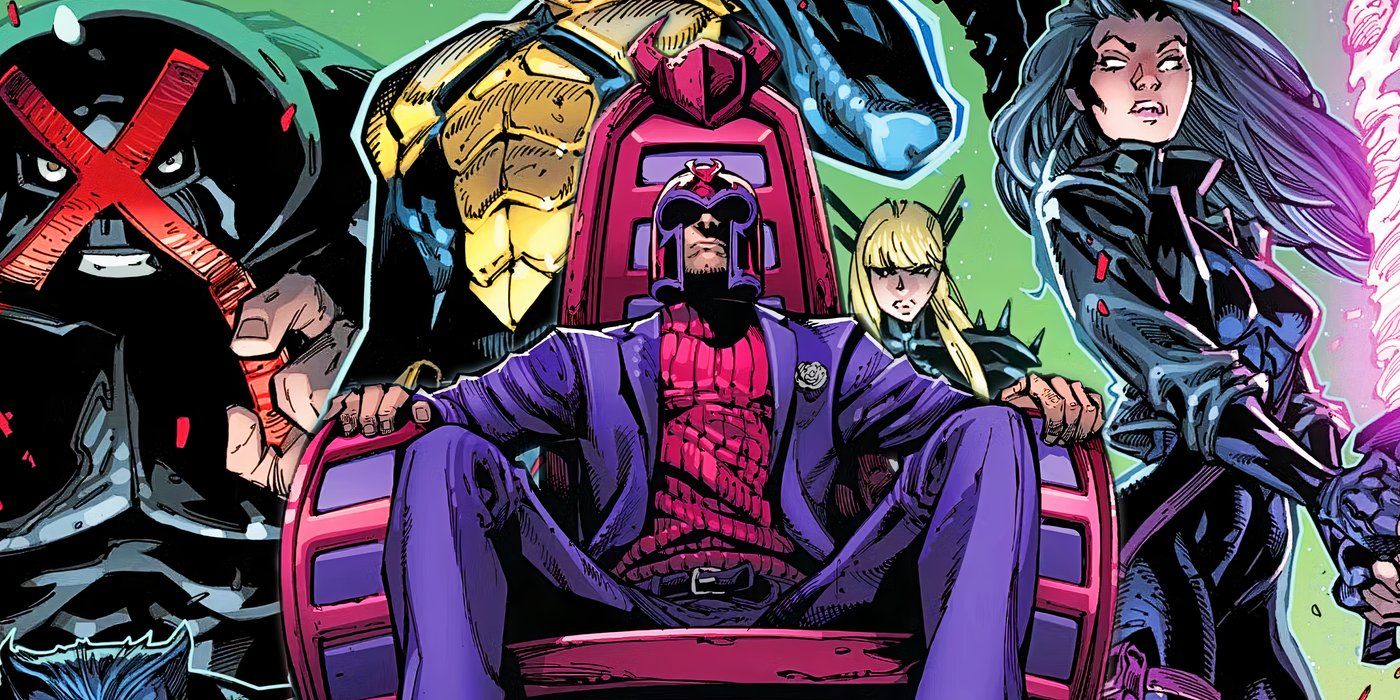
Warning: contains spoilers Avengers #21!!
Magneto is one of the most recognizable figures in comic book history, but he has changed significantly since his days as the X-Men's main antagonist. Although the Master of Magnetism still fights for the survival of mutants, he has expanded his umbrella of protection to include all who suffer under their oppressors - whether the victims are mutants, humans, or something else entirely. Magneto has a new purpose in life, and the underprivileged of the world should celebrate.
In Avengers #21 – written by Jed MacKay, with art by Valerio Schiti – Scott Summers and Carol Danvers bring together the Avengers and X-Men for a friendly baseball game, reaffirming their alliance, during which Vision questions Magneto about his new convictions after Max mentions that his recent resurrection has granted him clarity.
Although the mutant leader has always been driven by his personal beliefs, he admits that he realized that the real fight was never between mutants and humans, but between "the oppressor and the oppressed." Magneto's new perspective is simultaneously altered and perfect in character.
Magneto's new purpose: to combat all forms of oppression - not just save mutants
Avengers #21 – Written by Jed MacKay; Art by Valerio Schiti; Color by Federico Blee; Cory Petit Lyrics
Mutantkind's battle for safety and freedom never ends. Any ground they gain is eventually taken from them and the fight for survival is incessant. No one knows this better than Magneto, whose life is dedicated to protecting his people. From founding the mutant nation of Genosha to being instrumental in the creation of Krakoa, he has done everything in his power (and often beyond) to make a difference, only for mutantkind to end up with nothing but conflict again. Now, after possibly the worst loss in mutant history, he's not refusing to give up – he's expanding his reach.
Magneto talk to Vision at Avengers #21 marks his biggest departure from his original goal, and this call for solidarity embodies the hero he became.
Magneto's new conviction is a far cry from his early days. Although he has always focused on oppression, he has spent decades fighting the obvious disparity between humans and mutants. This led him to found the Brotherhood of Evil Mutants, commit acts of terrorism and violence across the world, and strive to place mutantkind above humans. Max's rage drove him to fight for mutant superiority rather than equality, and many were injured or killed along the way. Magneto talk to Vision at Avengers #21 marks his biggest departure from his original goal, and this call for solidarity embodies the hero he became.
Magneto's evolution took place over decades
A sometimes uneven redemption arc
Despite how much he's changed in recent years, many still remember Magneto as a mutant terrorist. It's a well-deserved reputation, after creating a team of supervillains and committing several public acts of violence. However, as heinous as some of his actions were, they were rooted in unimaginable pain and anger and were not necessarily indicative of the man beneath them. After losing his entire family in the Holocaust and seeing his beloved daughter, Anya, die while humans prevented him from rescuing her, the only thing Max Eisenhardt had left was his anger and guilt. It was difficult to get rid of.
Although he has sided with the X-Men on and off and has seemingly turned over a new leaf, Magneto has still fallen victim to those old feelings during certain moments, such as murdering Red Skull and inadvertently triggering Red Onslaught during the Marvel movie. AXLE event. Max's path to heroism wasn't easy, but when he died on Arakko, he was hailed as a true hero to mutantkind. Essentially, Magneto is no longer the main antagonist of the X-Men for someone who walks the line between villainy and heroism and ultimately one of the most respected figures in mutant history. Max Eisenhardt never stops evolving.
Part of the reason why the process of Magneto's rehabilitation as a heroic figure took so long is that it needed to be well deserved; more than just the most famous villain in X-history, he is the most infamous, which means he is among the most dangerous. The other reason is that different generations of Marvel writers and editors disagreed on the decision, leading to some creative teams going backwards and undoing their progress. Now, however, Marvel is betting on Magneto as a hero, and it's the right decision.
Returning from the afterlife forced Magneto to truly re-evaluate how to fight for everyone
Resurrection of Magneto (Four-Issue Series) – Written by Al Ewing; Art by Luciano Vecchio; Available now from Marvel Comics
Although Magneto is preparing to fight for all marginalized people, this evolution has been a painful process. Death wasn't the end of Max's struggle, and he spent his time in the afterlife essentially creating a hell for himself. When Storm found his friend, he was surrounded by walls emblazoned with hundreds and hundreds of names, each representing a person he associated with regret. Some were killed by his followers, while others were from Max's personal life, but all left him with an unshakable burden. In choosing resurrection, he simultaneously chose not to repeat the mistakes that etched those names.
Storm tried to resurrect Magneto to fight Orchis, but the fight didn't end there. Not only has AI turned against humanity, but humans are now direct victims of experimentation, as Cassandra Nova and her group are forcibly activating the X genes in homo sapiens. In addition to targeted attacks, society itself has many layers of built-in oppression designed to prevent all types of humans, mutants, synthezoids, and others from truly thriving. Orchis has been defeated, but the fight against those who abuse its power and resources is beginning again. Magneto returned with the intention of making a difference; his resurrection was always intended to be impactful.
With Mutantkind returning to human society, the world needs Magneto as its defender more than ever.
His power goes beyond metal manipulation
Magneto is currently suffering from R-LDS (Resurrection Linked Degenerative Disease), the disease that currently causes some mutants to lose control of their abilities. At a time when people need someone to fight for them, he is unable to tap into his gifts, but Magneto certainly has more to offer than just his magnetism. For better or worse, he was always an inspiring man. People are willing to act on his behalf, to defend what he believes in, even when he is not there, and he can still make a huge impact by openly embracing all the oppressed peoples of the world.
By bringing together humans, mutants, and anyone who has “power inflicted upon them,” Magneto can start a new kind of revolution – even with his mutant powers out of reach.
During his harrowing time in the afterlife, Max Eisenhardt became embroiled in guilt and regret for all those who were hurt by his hands or in his name. The Brotherhood lived without him, and those who held fast to his early decrees continued to commit violence, and he bore the brunt of each of them. Magneto speaks and people listen. Now, he has the unique opportunity to use it for something extraordinarily good. By bringing together humans, mutants, and anyone who has "power inflicted on them" together, Magneto can start a new kind of revolution – even with his mutant powers out of reach.
